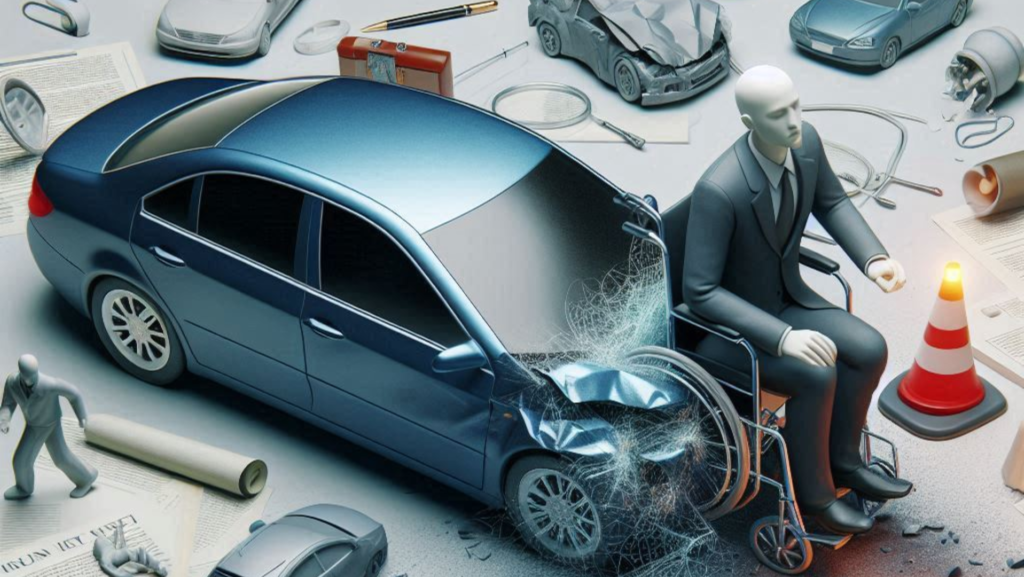Being involved in a personal injury accident can be very frightening and overwhelming. In the aftermath, your actions can significantly impact your health, recovery, and any potential legal claims. Avoiding common mistakes can help ensure you get the proper medical treatment and protect your rights. Here are the top 10 mistakes to avoid after a personal injury accident.
1. Failing to Seek Immediate Medical Attention
One of the most critical mistakes you can make after an accident is not seeking immediate medical attention. Even if you feel fine or think your injuries are minor, it’s essential to get a medical evaluation. Some injuries may not be apparent immediately and can worsen over time. Medical records serve as vital evidence if you decide to file a personal injury claim, proving that your injuries resulted from the accident.
2. Not Reporting the Accident
Failing to report the accident to the relevant authorities is another significant mistake. Whether it’s a car accident, a workplace injury, or a slip and fall, you need to inform the appropriate parties. For car accidents, call the police and file a report. For workplace injuries, report the incident to your supervisor and complete any necessary documentation. This report serves as an official record of the incident and can be crucial for any legal proceedings or insurance claims.
3. Admitting Fault or Apologizing
After an accident, feelings can run high, and you can feel pressured to say you’re sorry or take responsibility. Statements of fault or apologies can be used against you by insurance companies or in court to undermine your claim. It’s best to stick to the facts when discussing the accident with the other party or authorities and avoid making any statements that could be interpreted as admitting liability.
4. Failing to Collect Evidence
Evidence is crucial in a personal injury case. Not collecting sufficient evidence at the scene of the accident can weaken your claim. If you are physically able, take photos of the accident scene, your injuries, and any property damage. Gather contact information from witnesses and ask for copies of any surveillance footage if applicable. This evidence can support your version of events and help establish liability.
5. Delaying Legal Action
The statute of limitations, or the time for bringing legal action, varies by state. Delaying legal action can result in missing this critical deadline, potentially barring you from recovering any compensation. Contact a personal injury attorney as soon as possible to discuss your case and ensure that all necessary legal actions are taken promptly.
6. Accepting the First Settlement Offer
Insurance companies frequently attempt to resolve disputes as soon as possible and for the least amount of money. Accepting the first settlement offer without proper evaluation can be a mistake. The initial offer may not cover all your medical expenses, lost wages, and other damages. Consult with a personal injury attorney before accepting any settlement to ensure that you receive fair compensation that reflects the true extent of your injuries and losses.
7. Not Keeping Detailed Records
Keeping detailed records after an accident is vital. Failing to document your medical treatments, expenses, and the impact of your injuries on your daily life can weaken your claim. Maintain a journal of your symptoms, doctor visits, treatments, and how your injuries affect your ability to work and engage in daily activities. These records can provide valuable evidence to support your claim for compensation.
8. Ignoring Doctor’s Orders
Following your doctor’s orders is crucial for your recovery and your personal injury claim. Ignoring medical advice or failing to attend follow-up appointments can be used against you by insurance companies, who may argue that you are not as injured as you claim. Adhere to your treatment plan, take prescribed medications, and attend all medical appointments to demonstrate your commitment to recovery and the seriousness of your injuries.
9. Posting on Social Media
In today’s digital age, it’s common to share details of your life on social media. However, posting about your accident, injuries, or activities can be detrimental to your personal injury claim. Insurance companies and defense attorneys often monitor social media profiles for evidence that can be used to undermine your case. Avoid posting about your accident or any activities that could be misinterpreted as evidence that your injuries are not as severe as claimed.
10. Not Consulting a Personal Injury Attorney
Navigating the complexities of a personal injury claim on your own can be challenging and overwhelming. Not consulting with a personal injury attorney is a significant mistake. An experienced attorney can guide you through the legal process, help gather evidence, negotiate with insurance companies, and advocate for your rights to ensure you receive the compensation you deserve. They can also provide valuable advice on avoiding other common pitfalls and mistakes in your case.
Conclusion
After a personal injury accident, the actions you take can profoundly impact your health, recovery, and any potential legal claims. By avoiding these common mistakes—seeking immediate medical attention, reporting the accident, not admitting fault, collecting evidence, taking prompt legal action, evaluating settlement offers, keeping detailed records, following doctor’s orders, being cautious with social media, and consulting a personal injury attorney—you can protect your rights and increase your chances of receiving fair compensation. Navigating the aftermath of an accident can be complex, but with the right approach and professional guidance, you can focus on your recovery and secure the best possible outcome for your case.


